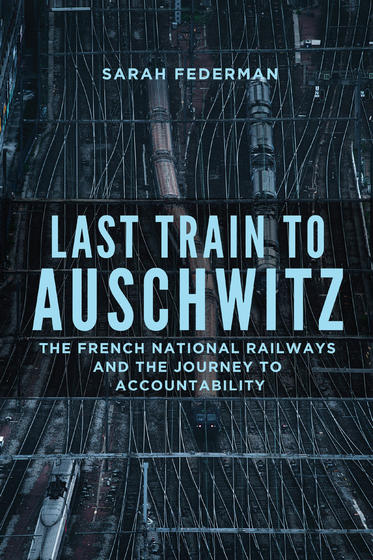From Monday, April 4, through Friday, April 8, the Carter School Spring 2022 Peace Week will focus on the theme of Ideas and Action: Integrating Theory and Practice for Peace and Conflict Resolution.
From Monday, April 4, through Friday, April 8, the Jimmy and Rosalynn Carter School for Peace and Conflict Resolution at George Mason University hosted a daily series of roundtables, webinars, workshops, and book talks with Carter School dean Alpaslan Özerdem to bring together the Carter School community and the broader public in dialogue about peace, conflict resolution, and justice.
Calendar of Events
Day 1 - Monday, April 4th
9:30 AM - 11:00 AM
Presented by Carter School Better Evidence Project
Search for Common Ground and the Better Evidence Project are working in different ways to develop more resources for evidence of peacemaking and war prevention while also developing networks that will enable peacebuilding organizations worldwide to share lessons and data.
Learn more
This session will be a discussion about what we know and don’t know, the next steps towards strengthening evidence-based peacebuilding, and where gaps remain. As a community of practice, how can we more effectively share what we are learning? At a minimum, evidence-based peacebuilding must result from meaningful input from, and collaboration with, practitioners and organizations in conflict-affected societies. How can scholars and researchers contribute to that? Search for Common Ground has developed a Global Impact Framework, in consultation with organizations and practitioners in the field, intended to bring together the lived experience of those living and working in conflict and to align measures that help people understand where they are most influential in transforming conflict. In doing so, Search for Common Ground and the Better Evidence Project, through its forthcoming Resource Center, are reframing the conversation about evidence related to peace and conflict in a way that can foster cross-fertilization and inform better learning and decision-making at all levels, while also incorporating local actors and needs as well as bridging theory and practice.
Facilitator: Jeffrey Helsing, Executive Director, Better Evidence Project, Carter School, George Mason University
Speakers:
-
Marin O'Brien Belhoussein, Senior Manager, Institutional Learning Team, Strategy Alignment Department Search for Common Ground
-
Jack Farrell, Manager, Partnerships & Strategic Innovation and Project Lead of DME for Peace, Search for Common Ground Member of Learning, Evaluation and Research team, United States Institute of Peace--to be determined
-
Ziad Al Achkar, PhD Candidate, Carter School; Research Affiliate, Better Evidence Project
-
Sandra Tombe, Research Program Officer, Learning, Evaluation and Research United States Institute of Peace
10:00 AM - 12:00 PM
Presented by Carter School Transforming the Mind for Peace Lab
Hatred, fear and repulsion—repeated experiences of these sentiments can alter the mind’s structure in ways that reinforce negative relations to others. Yet, positive experiences of caring, sympathy and compassion can reverse this down-ward mental patterns and foster pro-social relations. How can such positive attitudes be induced among conflict actors?
Facilitator: Daniel Rothbart, Carter School, George Mason University
Lab Researchers:
-
Shannon Sneary Alabanza, Graduate student, Carter School, George Mason University
-
Natalia Alexander, Graduate Student, Columbia University
-
Mathieu Bere, Ph.D. student, Carter School, George Mason University
-
Toni Farris, Ph.D. student, Carter School, George Mason University
-
Beltina Gjeloshi, PhD student, Carter School, George Mason University
-
Brittany Sue Justice, Psychology Major, George Mason University
-
Jena Kitchen, Graduate Student, Carter School, George Mason University
-
Naomi Kraenbring, PhD student, Carter School, George Mason University
-
Charles Kwuelum, Ph.D. student, Carter School, George Mason University
-
Megan Price, Adjunct Faculty, Carter School, George Mason University
-
Nicholas Sherwood, PhD student, Carter School, George Mason University
-
David Stebbins, Ph.D. student, Carter School, George Mason University
1:30 PM - 3:00 PM
Presented by Carter School Transitioning Justice Peace Lab: Carceral Societies Section
Those who enter carceral spaces will, either immediately or in time, engage with and be impacted by deeply entrenched and protected patterns of dehumanization. Who is considered fully human and on what these determinations rest include theories of the person, power, value, race, gender, culture, and so on. Given these foundations, the system does not intend to transform but to break down, to endlessly punish, to justify the unjustifiable – glossed over by the notion of public safety.
Learn more
The Carceral Societies Peace Week event focuses contrarily on transformation and redemption through education, proposing an alternative theoretical and practical value system – learning, expanding the self through critical reflection, engaging in deep dialogue with class members, more fully understanding the self. This can open a social, emotional, and cognitive space in which to create, metaphorically and practically, a world in the face of violent onslaught (Nordstrom). The process of transformation weaves together with frames of personal redemption. These threads support learning to acknowledge and forgive the self, others, and to realize and accept the importance of an alternative set of meanings. Upon those meanings, can rest a profound potential for action.
Facilitator: Dr. Patricia Maulden, Carter School, George Mason University
Speakers:
-
Shawnta Montgomery, Bard Prison Initiative Alumna
-
Leo Hylton, 2nd year Carter School graduate student, Visiting Instructor at Colby College, and monthly columnist for the publication Mainer, wherein he seeks to raise consciousness around existence and power of humanity in carceral spaces
-
Catherine Lowe Besteman is an anthropologist and holds the position of Francis F. Bartlett and Ruth K. Bartlett Professor of Anthropology at Colby College in Waterville, Maine.
5:00 PM - 6:30 PM
Presented by Carter School Transitioning Justice Peace Lab: Restorative Justice Section
Restorative justice (RJ) initiatives are proliferating nationally and internationally. In response, academics and practitioners are questioning how best to produce knowledge about the achievements of these initiatives, the areas for improvement, and their broader social contributions.
Learn more
A roundtable of experts working in and with RJ initiatives will discuss trends in RJ evaluation and related research, including efforts to evaluate the extent to which RJ initiatives repair harm, empower those harmed, increase healing, restore relationships, and foster community connection. The conversation will explore current controversies in evaluating RJ initiatives (e.g., the nature of “success”) and the topics such as: the potential value of community-sourced RJ indicators, the emphasis on measuring recidivism and victim satisfaction, the ethical dilemmas of RJ research (e.g., confidentiality), and related topics. More broadly, speakers will be asked to comment on how we might assess whether RJ initiatives achieve aims related to increasing justice, promoting equity, and building peace. In break-out groups, speakers will collaborate with attendees to define the next steps in designing and evaluating RJ initiatives and other interventions.
Moderator: Dr. Susan F. Hirsch, Carter School, George Mason University
Panelists:
- Andrew Martinez (PhD), Principal Research Associate, Center for Court Innovation (New York)
- Cymone Fuller (MPA), Co-Director, Restorative Justice Project, Impact Justice (Washington, DC)
- Erica Washington (J.D.), Senior Program Associate, Restorative Justice Project, Impact Justice (Washington, DC)
- Arthur Romano (PhD), Assistant Professor, Jimmy and Rosalynn Carter School of Peace and Conflict Resolution (Virginia)
- Rochelle Almengor Arms (PhD), Assistant Professor, Peace and Social Justice Studies, Berea College (Kentucky)
Day 2 - Tuesday, April 5th
9:30 AM - 11:00 AM
Presented by Carter School Better Evidence Project
This session will focus on the importance of local peacemaking initiatives and how outside intervenors can complement rather undermine such efforts, as too often occurs. The specific focus will be on examples from Sub-Saharan Africa.
Learn more
Three cases will be highlighted: a South Kivu dialogue process that was organized and facilitated by Carter School faculty member Charles Davidson and local partners in the DRC; local mediation practice in Bangassou in the Central African Republic supported by UN Senior Mediation Advisor and Better Evidence Project Advisory Board member Emmanuel Bombande; and a successful network of women mediators (HAWENKA) who have strengthened the ongoing peace process among warring Somali diaspora groups in Northern Kenya. The Carter School’s Better Evidence Project provided a grant to HAWENKA that developed lessons from the mediation with an eye to developing evidence of the effectiveness of locally facilitated peacemaking efforts. There will also be a facilitated discussion about how local peacemaking initiatives are becoming more prevalent and more successful in areas where international efforts have usually failed.
Moderator: Jeffrey Helsing, Executive Director, Better Evidence Project, Carter School
Speakers:
-
Charles Davidson, PhD. Director, Carter School Political Leadership Academy
-
Amina Hassan Ahmed, Director, HAWENKA
-
Kenya Samwel Oando, Senior Advisor, HAWENKA, Kenya; and National Centre for Peace and Conflict Studies, University of Otago, New Zealand
-
Emmanuel Habuka Bombande, Senior Mediation Adviser, United Nations Department of Political and Peacebuilding Affairs
12:00 PM - 1:30 PM
Presented by Carter School Center for World Religions, Diplomacy and Conflict Resolution
Compassionate Reasoning: Changing the Mind to Change the World by Marc Gopin and published by Oxford will be the subject of a roundtable discussion between senior faculty of the Carter School. The book features an unprecedented combination of key findings from ethics, neuroscience, and public health; clarifies and simplifies complicated schools of ethics via the synthetic idea of Compassionate Reasoning; and combines lessons from the fields of science, philosophy, ethics, and world religions.
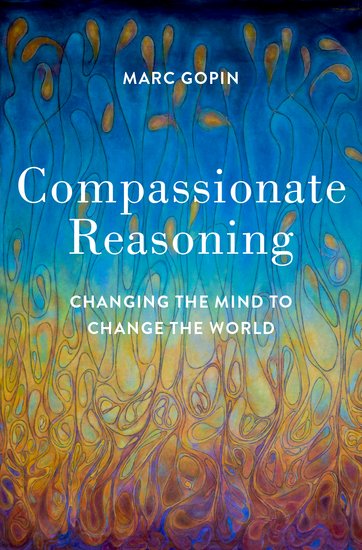
Learn more
Richard Rubenstein will critique the new methodology from the perspective of history and structural conflict analysis, Karina Korostelina from psychology, Daniel Rothbart from philosophy and ethics, Susan Allen from collaboration and conflict resolution practice, and other senior professors may join also. This session will honor innovation and continuity in the field of conflict analysis and resolution at the Carter School.
Facilitator: Marc Gopin
Speakers:
-
Professor Marc Gopin, Carter School, George Mason University
-
Professor Richard Rubenstein, Carter School, George Mason University
-
Professor Karina Korostelina, Carter School, George Mason University
-
Professor Daniel Rothbart, Carter School, George Mason University
-
Professor Susan Allen, Carter School, George Mason University
1:30 PM - 3:00 PM
This event will explore what is termed "New Hybridity" in peacemaking. An approach that is characterized by peace accompaniment from outsiders with a strong focus on local ideas and leadership. Other characteristics include a diverse set of participants, emphasis on female leadership, and a purposeful diminishing of the role of money in the process.
Facilitator: Dr. Charles Davidson, Director, Carter School Political Leadership Academy
3:30 PM - 5:00 PM
Presented by Cater School Reconciling Conflicts and Intergroup Divisions (RCID) Lab
The “Historic Peace Churches” designation has been attributed to the Mennonites, Church of the Brethren, and Religious Society of Friends/Quakers since post WWI. In this panel we will hear about the peace practices of these groups, rooted in their unique history, theology, and ritual, as well as the current and future peacebuilding work of various organizations and peacebuilding leaders tied to the Historic Peace Churches.
Learn more
The “Historic Peace Churches” designation has been attributed to the Mennonites, Church of the Brethren, and Religious Society of Friends/Quakers since post WWI. In this panel we will hear about the peace practices of these groups, rooted in their unique history, theology, and ritual, as well as the current and future peacebuilding work of various organizations and peacebuilding leaders tied to the Historic Peace Churches.
Facilitators:
- Charles O. Kwuelum, PhD student, Carter School for Peace and Conflict Resolution
- Naomi J. Kraenbring, PhD student, Carter School for Peace and Conflict Resolution
Panelists:
-
Gloria Rhodes, PhD, Associate Professor of Conflict Studies and Peacebuilding, Center for Justice and Peacebuilding, Eastern Mennonite University
-
Alain Epp Weaver, Director of Strategic Planning, Planning, Learning, Disaster Response, Department (PLDR), Mennonite Central Committee
-
Jes Stoltzfus Buller, Peace Education Coordinator, National Peace and Justice Ministries, Mennonite Central Committee U.S.
-
Nathan Hosler, PhD, Director, Office of Peacebuilding and Policy, Church of the Brethren, Pastor, Minister for Advocacy and Stewardship, Washington City Church of the Brethren
-
Rebecca Dali, Executive Director, Centre for Caring, Empowerment, and Peace Initiatives (CCEPI), Founder of Strategic Action for Community Development, Nigeria, 2017 recipient of the Sergio Vieira de Mello United Nations Humanitarian Award
-
Matt Guynn, Director of Church and Community Organizing, On Earth Peace
- Sarah Clarke, UN Representative and Director, Quaker United Nations Office, New York
-
Regina Shands Stoltzfus, Professor of Peace, Justice, and Conflict Studies, Goshen College
5:00 PM - 6:30 PM
Presented by Brian Baird, Ph.D. Clinical Psychology, Former Congressman (WA-3, 1999-2011), Founder and Chair of the National Museum and Center for Service
In the United States and around the world there are countless museums, monuments and memorials to wars, generals, battles and soldiers, but there is no signature museum anywhere in our nation, or in the world, to honor and inspire the hundreds of millions who serve the greater good other ways. The National Museum and Center for Service will be that place - a vibrant, experiential, interactive institution, to be located near the National Mall, with a mission to connect people to one another and tell the story of service in all its forms. Learn about the vision of the NMCFS, the team who is working to realize that vision and share your own ideas for how the NMCFS can help transcend differences and bring about a more peaceful, better world for all.
Facilitator: University Prof. Richard E. Rubenstein
Discussants: Members of the NMCFS Steering Committee
6:30 PM - 8:00 PM
Presented by Carter School Lemkin Genocide Prevention Program and The Center for Peacemaking Practice.
Co-sponsored by the Kroc Institute for International Peace Studies at the University of Notre Dame, The Joan B. Kroc School of Peace Studies at the University of San Diego, and the Peace and Conflict Studies Program at Conrad Grebel University College.
While a generation of changemakers and peacebuilders have set out to “Be the Change!” a thousand cautionary tales from the frontlines of social, economic, climate, and racial justice work suggest that deep ethical dilemmas don’t always have easily actionable answers. Join us for the book launch of Wicked Problems: The Ethics of Action for Peace, Rights, and Justice (Oxford University Press, 2022), where a panel of the books’ contributors discuss the trade-offs, dilemmas, and compromises they encounter in their daily work as conflict resolution practitioners, peacebuilders, advocates, organizers, and activists.
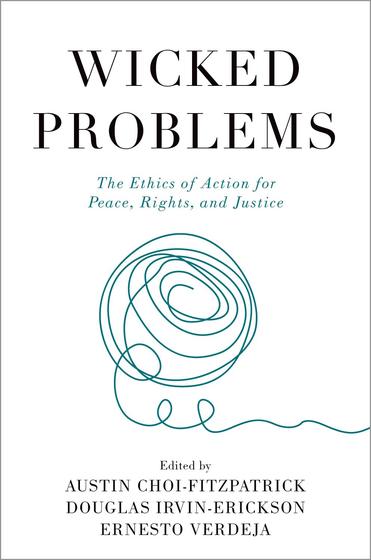
Learn more
Taking action for peace, justice, and rights often involves grappling with wicked problems, where there is no ethically clear or morally pure solution to be found. What happens when “do no harm” does a lot of harm? What happens when peacebuilding requires one group to compromise with injustice? And who decides who must do the compromising? Whose interests do we serve when we try to do good? What does it mean to be an ally? Whose idea of good counts as good? We’ll talk about these questions, and more, and leave time for an open conversation with the audience.
Speakers:
-
Reina Neufeldt, Associate Professor of Peace and Conflict Studies, The University of Waterloo
-
Agnieszka Paczyńska, Associate Professor, George Mason University
-
Susan Hirsch, Vernon M. and Minnie I. Lynch Chair and Full Professor, George Mason University
-
Douglas Irvin-Erickson, Assistant Professor, George Mason University
-
Austin Choi Fitzpatrick, University Professor, University of San Diego
-
Ernesto Verdeja, Associate Professor, University of Notre Dame
-
Ashley Bohrer, Assistant Professor, University of Notre Dame
Day 3 - Wednesday, April 6th
12:00 PM - 1:30 PM
Presented by Carter School Center for Peacemaking Practice
Join us for a presentation and discussion with authors and editors of the new book Confronting Peace: Local Peacebuilding in the Wake of a National Peace Agreement. How do local communities make peace with national peace agreements? What are the challenges for local peacebuilders in a post-agreement context? What are local roles in post-agreement nominal peace? Engage in these and related questions as we consider multiple cases of national peace agreements and the ways local communities experience and react to the national level peace.
Learn more
Facilitator: Susan H. Allen, Director, Center for Peacemaking Practice, Jimmy and Rosalynn Carter School for Peace and Conflict Resolution, George Mason University
Speakers:
-
Susan H. Allen, Director, Center for Peacemaking Practice, Jimmy and Rosalynn Carter School for Peace and Conflict Resolution, George Mason University
-
Landon E. Hancock, Professor, School of Peace and Conflict Studies, Kent State University
-
Christopher Mitchell, Emeritus Professor, Center for Peacemaking Practice, Jimmy and Rosalynn Carter School for Peace and Conflict Resolution, George Mason University
-
Cécile Mouly, Research Professor, FLACSO Ecuador
3:00 PM - 4:30 PM
This book, and book discussion, details the compelling story of the author’s life-journey through conflict zones and his return home with innovative conflict assessment and transformation frameworks and models to help people better see their conflict circumstances and peacebuilding possibilities—analytic reflections aimed directly at academics, professionals, and citizens. This engaging approach contains a blend of on-the-ground stories, mix of professional and personalized writing styles, astute historical and policy contextualization, and accessible field-tested analytic tools with community, societal, and international intervention implications.
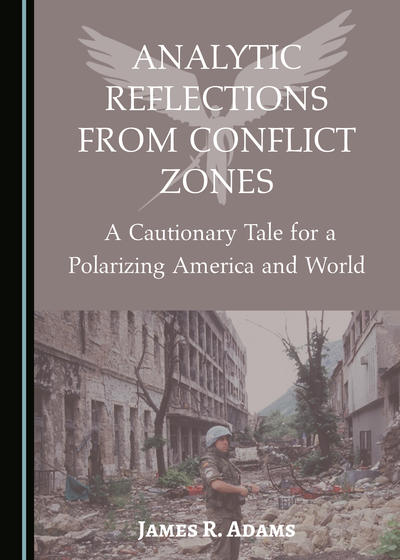
Learn more
Dr. Adams will introduce his innovative frameworks and composite models (field tested in Bosnia) for measuring structural and relationship elements within operationalized negative and positive peace parameters, along his War to Sustainable Positive Peace Continuum. The book is also a cautionary tale for increasingly conflicted societies. Political polarization, caustic commentary, and societal discord in America and elsewhere remind the author, an informed eyewitness, of dangerous conflict patterns and consequences that he has seen before in various conflict zones. He links the consequences of political polarization, extremism, and trends towards fascism with similar patterns that he has witnessed in conflict zones elsewhere. Audience members and participants will be encouraged to discuss theoretical and practical implications for scholar practitioners, professionals, and citizens. Dr. James Adams, a Vietnam veteran and professional field officer, has extensive on-the-ground experience in peace and stabilization operation roles with the United Nations and other international organizations in Africa, Kosovo, and Afghanistan. In pursuit of a better understanding of conflict and peacebuilding, he acquired an MS and PhD at the Carter School specializing in Peace and Stabilization Operations. He has presented resulting observations, and innovative frameworks and models to civilian and military audiences in Kosovo and at the U.S. National Defense University. His dissertation field research was carried out in Bosnia -- "Assessing Interventions Stalled in Negative Peace: A Model for Peace and Stability Operations.”
Speakers:
-
Dr. Christopher Mitchell, Emeritus Professor, Carter School for Peace and Conflict Resolution, George Mason University
-
Dr. Jeffrey Helsing, Executive Director of the Better Evidence Project, and Research Associate Professor, Carter School, George Mason University
Location: 3434 Washington Blvd, Arlington, VA 22301 | 5th Floor; Room 5183
4:30 PM - 6:00 PM
Presented by Carter School Transitioning Justice Lab
At this event, we will have a conversation with people who work in Washington D.C.'s Office of Neighborhood Safety and Engagement to learn how they work to defuse potentially violent conflicts in 25 of the city's neighborhoods.
Facilitator: Tehama Lopez Bunyasi
6:00 PM - 7:00 PM
Presented by Carter School Peace Engineering Lab
The conflict in Ukraine has forced all of us to consider how the actions we take in our work and our personal lives might be contribute to peace. In response to the crisis, students in the Peace Engineering and Participatory Methods launched the Sensemaking in Ukraine project to understand the dynamics of the conflict and what can be done.
Learn more
This Peace Week event will showcase the students’ research process that utilized SenseMaker technology in an interactive sensemaking workshop format. At the beginning of the workshop, you will be asked to share your perspective with SenseMaker: peaceengineeringlab.com/ukraine
Then students will lead an activity to examine patterns in the story data with participants, and then pose the question: What can the Carter School do to meet the emerging needs of people affected by conflict in Ukraine? This event is an exploration of possible futures and the official launch of the Sensemaking in Ukraine project as the first effort of the Peace Engineering Lab to establish complexity-informed conflict resolution methods.
Facilitator: Keil Eggers
Speakers:
-
Keil Eggers, Peace Engineering Lab Manager Students- CONF 695: Peace Engineering and Participatory Methods
-
Sam Frazier Hediger, Student - CONF 695: Peace Engineering and Participatory Methods
-
Oakley Thomas Hill, Student - CONF 695: Peace Engineering and Participatory Methods
-
Padideh Jalali-shirazi, Student - CONF 695: Peace Engineering and Participatory Methods
-
Kaylyn S Matis, Student - CONF 695: Peace Engineering and Participatory Methods
-
Haley D Nelson, Student - CONF 695: Peace Engineering and Participatory Methods
-
Ashton Rene Rohmer, Student - CONF 695: Peace Engineering and Participatory Methods
-
Solon Simmons, Associate Professor, Carter School, George Mason University
Location: 3434 Washington Blvd, Arlington, VA 22301 | 5th Floor; Room 5183
Day 4 - Thursday, April 7th
9:00 AM - 10:30 AM
Presented by Carter School Reconciling Conflicts and Intergroup Divisions (RCID) Lab and Transforming the Mind Lab
The panel present the findings from an oral history project involving Sudanese civilians who bear witness to the wars in Darfur, Nuba Mountains or the Blue Nile state. This project has two primary objectives: first, to showcase the civilians’ experiences in these wars with particular emphasis on the war’s impact on their lives, relations with family members and struggles for survival, and second, to gather their insights about the character of justice in their country that has been devastated by decades of systemic inequality.
Learn more
This panel also concentrates on the production of the meaning of justice in the aftermath of war and mass violence. While the majority of research concentrated on the production of the meaning of justice based on the experiences of war, conflict and violence, our study demonstrated that the respondents saw the advancement of justice as returning to the peaceful time rather than a response to the war. This tendency for meaning of justice to be connected to the collective memories of peace has potential implications for the design and implementation of justice program that tend to focus on the experiences of war and conflict rather than the visions of peace.
Facilitator: Dr. Karina Korostelina and Dr. Daniel Rothbart
Speakers:
-
Dr. Karina Korostelina, Professor, Carter School, George Mason University
-
Dr. Daniel Rothbart, Professor, Cater School, George Mason University
-
Beltina Gjeloshi, Ph.D. student, Carter School, George Mason University
-
Filmawit Kiros, Programmes and Grants Manager, Gisa Group, Nairobi, Kenya
-
Sudan Moneim Adam, Sudanese Archive Project Manager, Gisa Group, Nairobi, Kenya
-
Megan Greeley, Conflict Mitigation Consultant, DT Global
10:30 AM - 12:00 PM
Presented by Carter School Center for Peacemaking Practice
Join us for a book launch conversation with Dr. Paula Garb and Dr. Susan H. Allen, both of the Carter School Center for Peacemaking Practice.
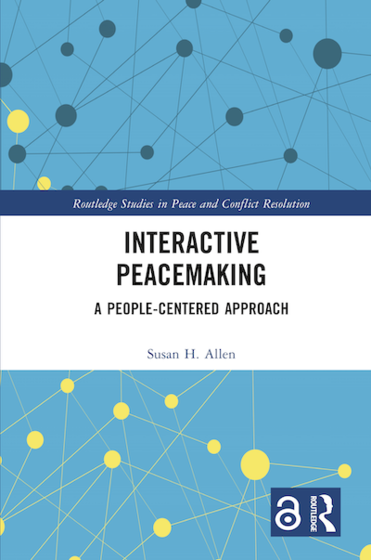
1:00 PM - 2:30 PM
Presented by Carter School Graduate Programs
Building a career path promoting peace isn't always easy! It requires excellent skills, a professional network, and a little bit of luck. Come listen to recent Carter School alumni discuss their pathways to building their peace careers and their advice to current students.
Facilitator: Thomas Flores
Speakers:
-
Sara Omar, Senior Associate, Kearns & West
-
Megan Borishansky, Assistant ADR Coordinator with the Fairfax County Office of Alternative Dispute Resolution
-
Georgia Handorth, Associate in Collaborating, Learning, Adapting, Monitoring, and Evaluation, Headlight Consulting Services
-
Chidi Blyden, Deputy Assistant Secretary for African Affairs, Department of Defense
2:30 PM - 4:00 PM
Presented by Carter School Reconciling Conflicts and Intergroup Divisions (RCID) Lab
Urban resilience approach is an inclusive form of building positive resilience, which recognizes that local communities possess valuable skills and experience of dealing with crises, and prioritizes the agency of local communities in the production of knowledge and developing practices.
Learn more
The roundtable identifies and describes the repertoire of peacebuilding practices that address the structure of conflict and enhance the community capacities, reflecting the dynamics of identity and power in urban disadvantaged neighborhoods. The concentration on community-based practices addresses macro-level critiques of neo-liberalism in critical resilience studies and encourages rethinking the ways community-based indicators might operate in combination with existing macro indicators of resilience. The bottom-up indicators provide more specific details and essential localized experiences for improving resilience policies at the national level.
Facilitator: Dr. Karina Korostelina
5:00 PM - 6:00 PM
Presented by Carter School Transitioning Justice Lab
How should the peace and conflict field respond to calls for justice, especially in response to conflict or harm? More broadly, how might justice—as an aim and a value--play a larger role in our theories and our practices? What is justice, to you?
Learn more
This event will raise these and related questions through breakout discussions using Circle Process. The event will begin with a brief introduction of Basic Circle Process, which is an approach to discussion that guarantees everyone a turn to speak, if they so choose. The main portion of the event will give the attendees an opportunity to participate in facilitated, breakout room circles. Participants are encouraged to stay for the entire event to experience the circle process and to learn what others discussed during a brief share out and Q&A. Finally, attendees will collaborate in creating next steps for the field as it comes to terms with the role of justice.
Facilitator: Sarah Atif
Day 5 - Friday, April 8th
9:00 AM - 11:30 AM
Help us launch the third edition of the 4-volume Encyclopedia of Violence, Peace, and Conflict. We are inviting more than 300 contributors and their networks from around the world to a summit of scholars of violence, peace, and conflict. We will assess our state of knowledge and where to go from here to mitigate violence and promote peace and nonviolent conflict. The event is co-sponsored by the George Mason University Sociology and Anthropology Department, the Jimmy and Roselynn Carter School for Peace and Conflict Studies, the UNESCO Peace Studies Chair at Nanjing University, and the Center for Social Science Research.
Speaker: Lester R. Kurtz, Editor-in-Chief Encyclopedia of Violence, Peace, and Conflict, Professor, George Mason University
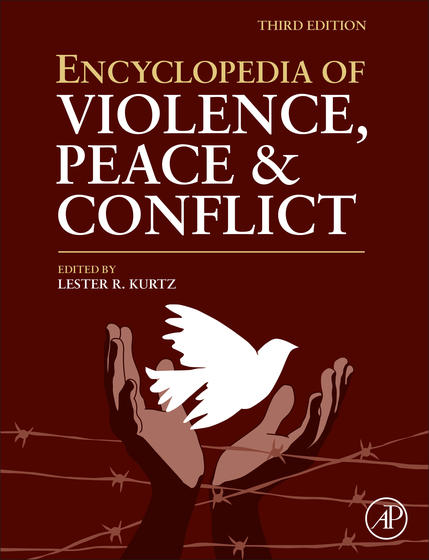
9:30 AM - 11:00 AM
Presented by Carter School Mary Hoch Center for Reconciliation (MHCR)
In 1991, Lederach and Wehr introduced the theory of insider partials into the academic literature - referring to individuals who are (a) actively engaging in peacebuilding processes between two or more conflicting groups and (b) members of or deeply connected to at least one of these groups. Since ‘insider partial’ was introduced into the literature, several scholars and practitioners have refined, clarified, and explored this theory - attempting to understand when, how, where, and why insider partials may be more or less effective at transforming conflict and violence.
Learn more
Since the Mary Hoch Center for Reconciliation’s (MHCR) founding in fall of 2019, a core value of our research and practice programs is the unwavering support for insider reconcilers (InRec), individuals who exemplify Lederach’s and Wehr’s theory, within a specific context of reconciliation practice. Over the past two years, MHCR has given financial, institutional, and programmatic support to three “Insider Reconciler Fellows”, hailing from Somalia, Kenya, and South Sudan.
Over the course of working with and learning from these Fellows, our staff has conceptualized and is currently implementing a pilot study seeking to understand the unique experiences of insider reconcilers, specifically seeking to understand the guiding theory of facilitating post-conflict intergroup reconciliation, strategies used during reconciliation processes, and the impact of reconciliation work on insider reconcilers’ mental health and wellbeing. The purposes of this panel are fourfold: (1) present the history and programmatic efforts of MHCR within the Carter School, (2) explore MHCR’s current research concerning Insider Reconcilers, (3) offer testimony from the field from an Insider Reconciler currently engaged in facilitating reconciliation processes, and (4) facilitate a discussion on the binds of theory and practice within a context of insider/outsider peacebuilders.
Facilitator: Nicholas R. Sherwood, Ph.D. Candidate & Associate Director, Mary Hoch Center for Reconciliation (MHCR)
Speakers:
-
Nicholas R. Sherwood, Ph.D. Candidate & Associate Director, Mary Hoch Center for Reconciliation (MHCR)
-
Hannah J. Adamson, B.A./M.S. Student & Programs Officer, MHCR
-
Cameron Cassar, M.A./M.S. Student & Communications Officer, MHCR
-
Oakley Thomas Hill, Ph.D. Student & Lab Manager, MHCR
-
Beltina Gjeloshi, Ph.D. Candidate & Research Officer, MHCR
-
Merisa K. Mattix, B.A./M.S. Student & Development & Administrative Coordinator, MHCR
-
Tecla Namachanja Wanjala, Ph.D., Founder, Shalom Centre for Counseling and Development (SCCODE)
-
Rowda A. Olad, LPC, Founder, Mandeeq Mental Health Without Borders
-
Carl Stauffer, Ph.D., Senior Expert, Reconciliation, United States Institute of Peace (USIP)
-
Antti Y. Pentikäinen, M.Th., Research Professor & Director, MHCR
11:30 AM - 1:00 PM
IN PERSON EVENT
The importance of art in our field is everywhere. We can close our eyes and see a piece of visual art that reminds us of our “why”- whether it be a Banksy piece in Syria or a photograph from Selma. Applied Theatre is a powerful art form that can help us to more deeply discuss oppression, conflict, peace and justice– and it is not for trained actors but for all of us! Come and experience an accessible, inviting and new way to enter into conversation about our field- our theories, our practice- and our hopes for the future of our work.
Facilitator: Nawal Rajeh, PhD Candidate, Carter School Co-founder and Community Builder at By Peaceful Means
3:00 PM - 4:30 PM
Discussion of Sarah Federman's new book, "Last Train to Auschwitz: The French National Railways and the Journey to Accountability" (2021) with the author and a panel of experts.
Moderator: Richard E. Rubenstein, Moderator, University Professor, Carter School, George Mason University
Speakers:
-
Sarah Federman, Prof. of Negotiation and Conflict Management, University of Baltimore
-
John Dale, Prof. of Sociology/Anthropology, George Mason University
-
Susan Hirsch, Prof. of Conflict Resolution, Carter School, George Mason University
-
Douglas Irvin-Erikson, Assistant. Prof. of Conflict Resolution, Carter School, George Mason University
